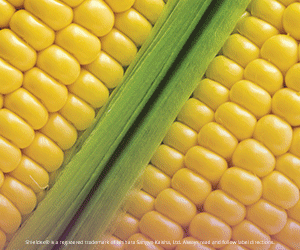Research roundup
FIND OUT WHAT’S NEW IN THE WORLD OF RESEARCH
Reducing nitrogen use with red clover
Johnny Roberts
Cutting down on nitrogen use but still maintaining higher yields — now, that’s a lofty goal. A Guelph researcher is helping to develop a management system that will combine lower nitrogen with steady profit.
Dr. Bill Deen is working with cover crops in corn, soybeans and wheat to study issues such as soil quality, nutrient cycling and management, tillage practices and appropriate nitrogen use.
Using red clover, which is typically used for nitrogen reduction in cover crop fields, Deen and his research team are trying to determine if it can consistently reduce nitrogen rates over time, and help growers enhance the productivity of their entire crop system.
“We are currently evaluating drought tolerance in red clover as a means to improve uniformity so that farmers can fully benefit from using it to mitigate nitrogen problems,” he says.
Deen’s research receives funding from the Ontario Ministry of Agriculture, Food and Rural Affairs •
Chinese varieties could hold key to Ontario soybean sustainability
Samantha Beattie
Ontario soybeans are being grown and bred for many purposes such as food and oil. But researchers fear that a lack of genetic diversity is impacting yields, resulting in less disease and pest resistance and fewer breeding options to improve soybean traits and yields.
University of Guelph Plant Agriculture professor, Dr. Istvan Rajcan says that only about 35 varieties that were originally introduced to North America from China make up 90 percent of the genetics of North American soybeans. Since then, relatively few additional sources of genetic variations have been used in Ontario.
Rajcan is collaborating with several Chinese researchers to bolster Ontario soybeans by incorporating new yield, disease resistance genes and food grade quality traits — such as increased protein and oil content — from Chinese varieties.
“The genetic diversity of Chinese soybeans is much greater,” explains Rajcan. “So, we can use some of the Chinese varieties that had never been used to improve the genetics of our own soybeans.”
Funding is provided by the Natural Sciences and Engineering Research Council (NSERC), the Ontario Ministry of Agriculture, Food and Rural Affairs, Grain Farmers of Ontario and several other sources. •
Cover your ears
Katharine Tuerke
Since making its Canadian debut in 2008, the destructive Western bean cutworm (WBC) has caused the crop sector to fret. Now there’s another reason for concern: researchers have found that cutworm can overwinter in some regions of Ontario.
Dr. Art Schaafsma, professor in the Department of Plant Agriculture at the Ontario Agricultural College and director at the University of Guelph Ridgetown Campus, has partnered with research associate and PhD student Jocelyn Smith and entomologist Tracey Baute from the Ontario Ministry of Agriculture, Food and Rural Affairs (OMAFRA). Together, they are leading a team of researchers from several other universities and institutions to study the cutworm’s biology and behavior.
They want to better understand the insect’s distribution, overwintering success and ideal growing conditions within Ontario’s environment, so that they can quickly develop successful management strategies and practices for producers.
The next step is to investigate the effectiveness of various foliar insecticides for corn and dry beans, as well as feeding damage of WBC on transgenic corn.
“This partnership between OMAFRA and the University of Guelph speeds up knowledge acquisition, interpretation and transfer, allowing a quick reaction to an emerging problem,” says Schaafsma.
This research is funded by the Grain Farmers of Ontario, the Agricultural Adaptation Council of Canada, several crop protection and seed companies, and the Ontario Ministry of Agriculture, Food and Rural Affairs.•
Research Roundup is provided by members of SPARK (Students Promoting Awareness of Research Knowledge) at the University of Guelph’s Office of Research. For more information, contact a SPARK writer at 519-824-4120, ext. 52667.







